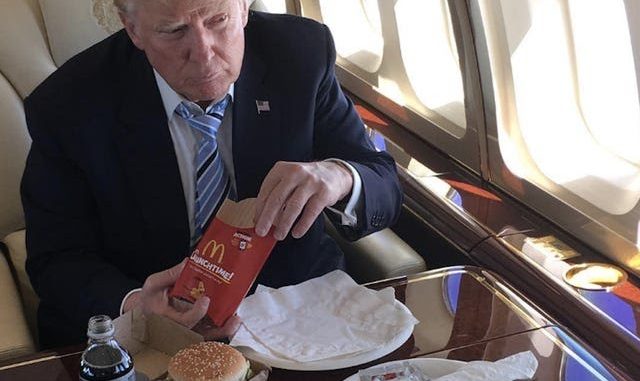
McDonald’s is working to prevent the passage of a coronavirus relief bill that would require restaurants across the US — 95% which are owned by franchisees — to give workers two weeks of paid sick leave in its current form, in an effort to protect franchisees’ financials.
The fast-food giant has been lobbying the Trump administration and Congress to alter a bill that would require employers with more than 50 and fewer than 500 workers to provide two weeks of paid sick leave, executives said in an internal conference call on Monday. McDonald’s has pushed back against the plans to use a tax credit to cover the cost, which executives said would fail to protect franchisees.
“We know that the funding mechanism and the repayment timing could cripple small business owners,” David Tovar, McDonald’s vice president of US communications, said on the call, according to a recording obtained by Business Insider.
Tovar continued: “So, we’re pulling out all the stops to work with the NFLA [National Franchisee Leadership Alliance], owner operators, our trade partners, our friends in Congress, Congressional Leaders, and anyone who can make a difference to fix the bill.”
A McDonald’s representative told Business Insider that the company is not opposed to the bill itself.
“To be clear, McDonald’s supports the bill that would provide sick leave support to employees impacted by Coronavirus, and in fact, McDonald’s and many of its franchise owners have already committed to offer those same benefits to potentially diagnosed employees,” a representative said. “At the same time, we are sensitive to the economic pressures independent owner-operators face and are supportive of efforts to ensure they have the cash flow needed to keep their employees working.”
McDonald’s leadership, along with other fast-food executives, spoke with President Donald Trump about the response to the coronavirus outbreak on Tuesday morning. Trump praised companies’ efforts on drive-thru and delivery in a speech on Tuesday afternoon.
McDonald’s leadership also spoke with members of the Trump administration on Monday, including Treasury Secretary Steven Mnuchin, discussing concerns about the bill. Tovar said that he was “encouraged” by Mnuchin’s comments, and that the Trump administration was open to feedback from McDonald’s.
McDonald’s discussed new policies meant to assist franchisees financially amid the coronavirus outbreak during the internal call on Monday. Executives said the fast-food giant will eliminate effective rent for March, forgo base rent in April and May, and delay scheduled ground breaks for new locations. The company is also cutting media spending.
McDonald’s announced on Monday that it would be closing seating areas at all company-owned stores and encouraging franchisees to do the same. McDonald’s executives said on Monday’s internal call that the company is planning for every possible outcome, including serving a reduced menu and closing locations.
The fast-food industry has faced criticism for its lack of paid sick leave amidst the coronavirus outbreak. A number of restaurant chains and retailers have recently changed their sick-leave policies to allow for two weeks of paid leave for employees who are quarantined or infected with coronavirus.
McDonald’s adjusted its sick-leave policy to provide a 14-day protected leave for employees at company-owned restaurants following exposure to or diagnosis with COVID-19. The company previously allowed and continues to allow employees at company-owned stores to earn up to five days of paid time off a year.
A McDonald’s representative told Business Insider that, while sick-leave policies vary in accordance with local laws, restaurants work to offer flexibility to employees. Further, it is “McDonald’s expectation that crewmembers stay home when they are sick.”
At 95% of McDonald’s locations in the US, owner-operators have the freedom to determine their own sick-leave policies.
A New York Times opinion piece published on Saturday highlighted McDonald’s as the employer in the retail, restaurant, and hospitality industries with the most workers who lack paid sick leave, with 517,000 employees, according to surveys from The Shift Project.
“As the new coronavirus spreads across the United States, the time has come for restaurants, retailers and other industries that rely on low-wage labor to abandon their parsimonious resistance to paid sick leave,” the piece from The Times’ Editorial Board states. “Companies that do not pay sick workers to stay home are endangering their workers, their customers and the health of the broader public.”
Originally, the coronavirus relief bill required a permanent paid sick leave requirement. Republicans pushed back against the requirement, and it was dropped.
McDonald’s is asking franchisees to reach out to local representatives to express concerns about the bill’s funding mechanism. The International Franchise Association (IFA) has also pushed back on the proposed bill.
“The construction of the paid leave mandate and refundable tax credit leaves small businesses with a significant and immediate cash flow crisis for the next six to eight critical weeks,” Matt Haller, the IFA’s senior vice president of government relations and public affairs, wrote in an open letter on Monday.
*story by Business Insider